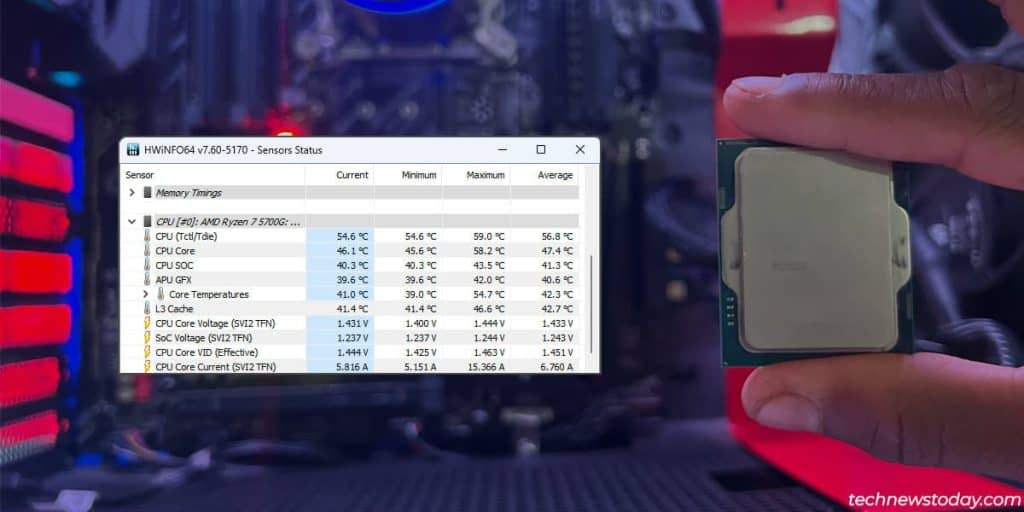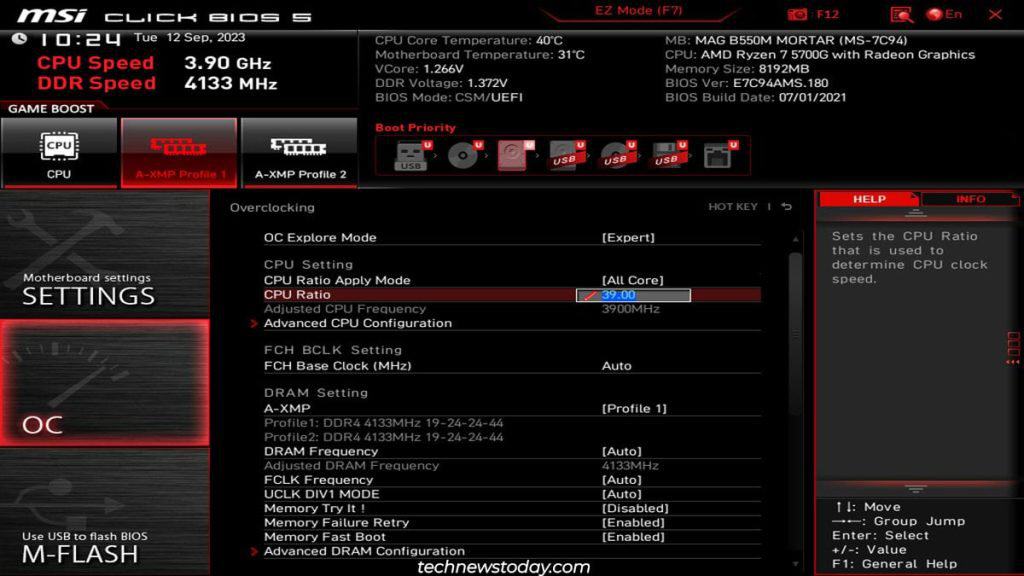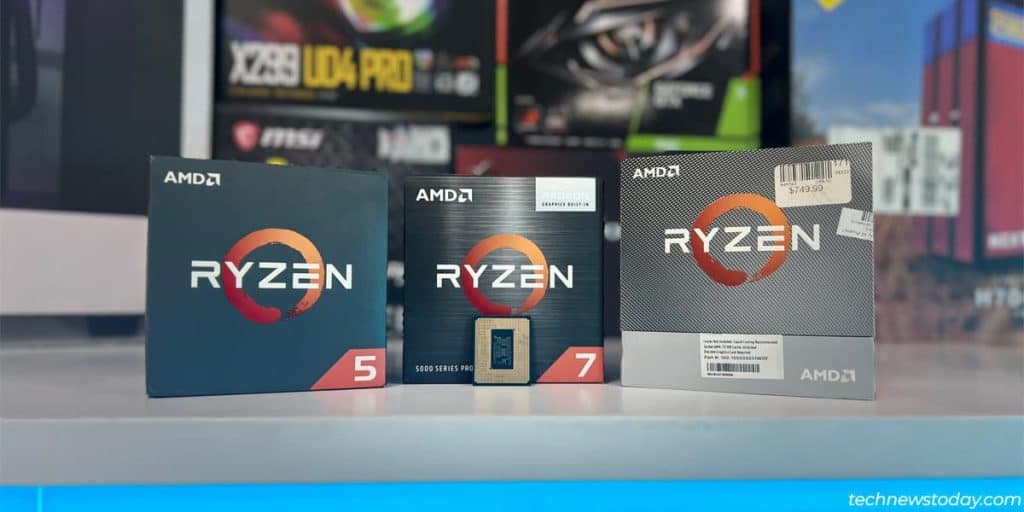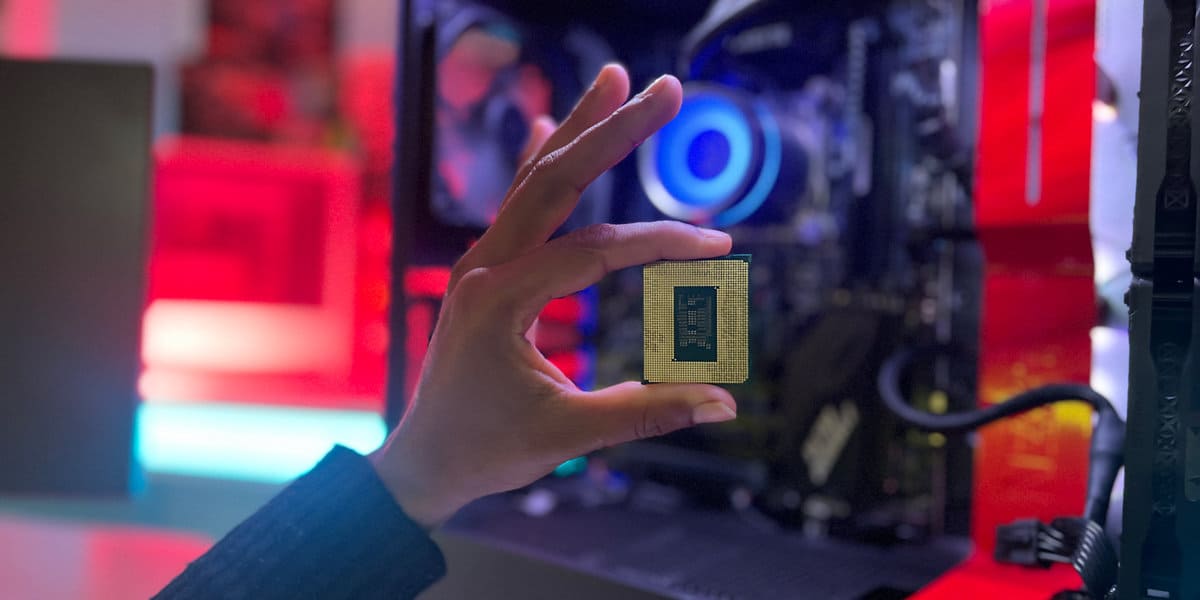How Long Do CPUs Last.
CPUs are extraordinarily sturdy. Most CPUs final for 10+ years and are the final part to die in a system. In phrases of bodily lifespan, as soon as you buy a CPU, you’re set for the following decade.
But the factor about expertise is that obsolescence is all the time a serious concern, and that is very true for CPUs.
How quickly a CPU turns into out of date is determined by the individual’s wants and workload. On common, most individuals improve their CPUs each 5 years or so.
Factors that Affect CPU Lifespan
First of all, remember the fact that Dead on Arrival (DOA) CPUs are regular and even frequent to an extent. Barring such instances, let’s speak about what components have an effect on a CPU’s bodily lifespan.
Operating Temperature

CPUs don’t have any shifting elements to trigger mechanical put on and tear. Instead, they degrade over time because of materials migration, or more particularly, electromigration.
This is the place the present flowing via the CPU’s channels causes ions to float away and slowly erode the connections (sort of like financial institution erosion by flowing water). This finally results in the failure of the circuits.
Heat is dangerous for electronics for quite a few causes. With CPUs, the principle purpose is that warmth exacerbates electromigration. It makes the failure of ICs because of electromigration more possible.
What does all of this imply virtually, although?
Manufacturers take electromigration under consideration when designing CPUs, and official temperature limits exist for a purpose. I’d say 100°C is the common max temp for contemporary processors.
As lengthy as you don’t incessantly hit temps like these the place thermal throttling has to kick in, you’re nice. And this ought to be achievable even with minimal cooling and upkeep.
Overclocking

Overclocking permits greater clock speeds through greater voltages, and this could probably be dangerous for 2 causes.
Higher voltage leads to greater present, which ends up in more warmth being produced. As we’ve already established, warmth aggravates electromigration.
So, if overclocking leads to excessive temperatures over lengthy intervals, that’s not good to your CPU’s lifespan. But if you happen to’ve used an inexpensive overclock with an excellent cooling setup, this gained’t be an issue.
Now, let’s get into excessive overclocking.
- The really useful max voltage when overclocking is often round 1.4V. With good cooling, you possibly can push this quantity a bit greater (as excessive overclockers do). But once more, this restrict exists for a purpose.
- At greater voltages, you’ll discover CPU degradation in the long run. For instance, after a couple of months, the CPU gained’t have the ability to preserve the identical clock pace on the similar voltage.
- At voltages above ~1.7V, degradation will set in a lot faster (days, hours, and even minutes).
- At excessive voltages like 1.8V+, it is best to anticipate the CPU cores to die immediately, or very quickly.
This occurs because of Gate Oxide Breakdown (the intense voltage wears down the oxide layer within the transistor gates till the transistor fails).
This is fanatic territory, although. 99% of individuals can obtain a passable overclock whereas staying nicely throughout the really useful voltage and temp limits. Practically, you don’t want to fret about this, but it surely’s nonetheless good to know.
Handling & Physical Damage

People set up CPUs incorrectly and bend the pins, spill thermal paste onto the contacts, or just drop the CPU when cleansing it. It occurs.
It’s often doable to restore a couple of bent pins. And you possibly can often clear spilled thermal paste with isopropyl alcohol. In this case, the CPU will most likely work with no vital influence on its lifespan.
But generally, a variety of pins would possibly get bent, or a few of them would possibly break off. Or, you would possibly spill liquid metallic onto the pins/contacts. In this case, the CPU is probably going not recoverable.
Misc Factors

The different main menace for CPUs is an influence surge. When an affordable PSU goes dangerous, it may take different elements to the grave with it.
For exterior energy spikes, it’s good to make use of a surge protector. Additionally, a dependable PSU will present an additional layer of safety to your elements.
Besides this, the silicon lottery performs an element. If you’re taking a number of models from the identical manufacturing line, you’ll discover that some carry out higher than others, and a few die faster than others. The construct high quality isn’t one thing you possibly can management, but it surely’s nonetheless good to know.
How Long Do CPUs Last On Average?
Ok, we all know what components have an effect on the CPU’s lifespan now. But what does all of that imply by way of stats? How lengthy will your CPU really final?
For the common person, you possibly can anticipate it to final 10-15 years. This is assuming you don’t bodily injury the CPU, you don’t fiddle with excessive overclocking, and your CPU temps are cheap.
Even CPUs that run 24/7 (like server techniques) are inclined to final a decade or more. If the temps are on the upper aspect, that may take a couple of years off the CPU’s complete lifespan. But you possibly can often treatment this by cleansing the PC and changing the thermal paste on time.
Essentially, a CPU’s bodily lifespan isn’t one thing you must fear about. A way more legitimate concern could be obsolescence.
To put issues into perspective, my first PC that I constructed over 15 years in the past had a Pentium 4 processor from Intel. And it’s nonetheless going robust! I’ve needed to exchange some elements just like the RAM and storage drives. But the motherboard and CPU are nonetheless working nice!
That PC isn’t good for a lot apart from storage and internet searching, although. The specs are merely outdated for many of my present wants.
CPUs grow to be out of date a lot before they die. So, let’s speak about that now.
Do You Need to Upgrade Your CPU?

I constructed my present PC final yr (paired a Ryzen 5600 with an RX 6800XT). I primarily use it for 1440p gaming and content material creation.
With maxed-out settings on Cyberpunk 2077 2.0, the CPU utilization stays round 50%. The 6 cores and 12 threads are passable for virtualization and video enhancing as nicely. This construct is serving me nicely and I don’t assume I’ll have to improve for the following 4-5 years.
My level right here is that obsolescence simply is determined by the person and their wants.
Plenty of fancy advertising is shoved in our faces as of late, however don’t let that offer you FOMO. Instead, ask your self on occasion – does my CPU do what I want it to do at a passable pace?
On common, folks improve their CPUs each 5 years or so. But totally different folks have totally different wants, so that you do you!
Check out more article on – How-To tutorial and latest highlights on – Technical News










Leave a Reply